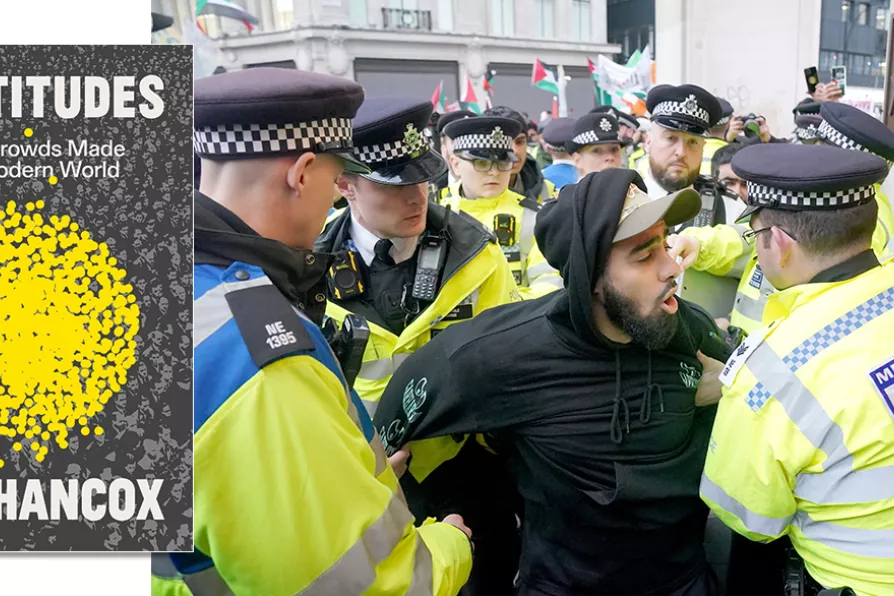JOHN GREEN, MARIA DUARTE and ANGUS REID review Fukushima: A Nuclear Nightmare, Man on the Run, If I Had Legs I’d Kick You, and Cold Storage

 FEAR OF MULTITUDES: Policing overkill at a pro-Palestine march on March 23 2025
FEAR OF MULTITUDES: Policing overkill at a pro-Palestine march on March 23 2025
Multitudes: How Crowds Made the Modern World
Dan Hancox
Verso, £20
“WHY do we join crowds?,” asks Dan Hancox in his book examining the crowd in its physical, social and psychological forms. Mob, horde, rabble, mass, swarm — there is no shortage of denigratory terms to describe large gatherings of humanity, whether their communal purpose is to support their local football team or to celebrate in shared carnivalesque joy at the burgeoning music festivals but particularly to demonstrate for or against an infringement on their own or others’ freedoms.
Hancox claims that the crowd is “both the agent and the protagonist of history; the harbinger of change, the forcer of arguments.”

STEVE ANDREW enjoys an account of the many communities that flourished independently of and in resistance to the empires of old

DAVID HORSLEY reminds us of the roots and staying power of one of the most iconic festivals around










